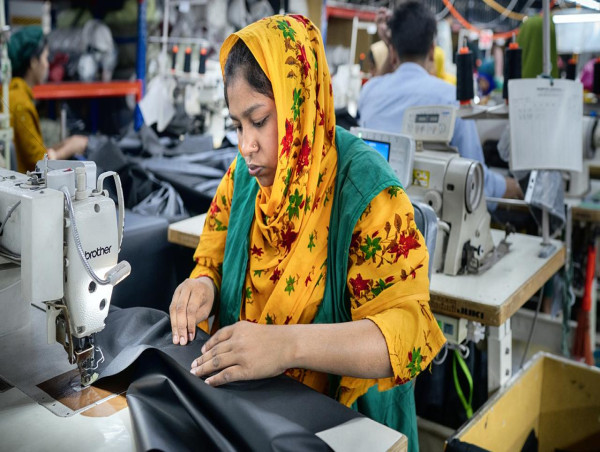Garment workers in parts of Asia are earning as little as $75 a month while being subjected to inhumane working conditions, as experts call on Australian fashion brands to intervene.
The cost of living crisis has pushed many factory workers further below the poverty line and critics say they are being forced to work in unsafe and exploitative environments.
More than 80 per cent of Australian clothing is produced in Bangladesh, China, Vietnam and India and human rights group Oxfam Australia wants fashion brands to ensure their clothes are made in fair conditions.
A recent Oxfam survey found demand for ethical fashion is on the rise with about nine in 10 Australians rating the safety of garment workers as important when buying clothes.
Nearly one-third of buyers consider the human rights of garment workers in their clothing purchasing decisions and this is more prevalent among Gen Z, Millennials, and Gen X.
"Younger generations are much more conscious and aware of the impact of unethical business practices," Oxfam Australia's economic justice lead Nayeem Emran told AAP.
He added that brands could help by "paying workers a living wage, providing safe working conditions, signing the International Accord for Health and Safety in the Textile and Garment Industry, and respecting workers' rights to unionise and bargain collectively".
Oxfam Australia recently met with garment workers in Bangladesh ahead of the 10th anniversary of the Rana Plaza tragedy on Monday.
Mr Emran said workers there were stuck in survival mode and mostly concerned about keeping their jobs, particularly since wages had not increased in the last five years.
He called for urgent industry reform to prevent a repeat of the 2013 accident in Dhaka, Bangladesh, where more than 1000 people were killed and at least 2500 injured when an eight-story garment factory building collapsed.
The incident marked the deadliest garment factory disaster in history and was reportedly caused by administrative failures.
Survivor Nilufa Yesmin suffered a spinal injury during the accident and has not been able to work since.
"No garment factory takes me, they say I am injured from Rana Plaza and I cannot work," Ms Yesmin said.
"Those who buy clothes from Bangladesh and wear them, I want to tell them that, the workers are not paid equally, compared to the work. But workers have the right to get a fair wage from owners and should never be harassed. And they should get a fair wage."
Mr Emran said very little had improved for garment workers in the ten years since the disaster.
"Ten years after the Rana Plaza tragedy, though progress had been made though the International Accord for Health and Safety in the Textile and Garment Industry, it is deeply disappointing to see brands like Best & Less refusing to sign. Equally disappointing is the lack of progression being made in improving the wages of garment workers," he said.
A spokeswoman for Best & Less said the retailer takes workplace health and safety seriously.
"Best&Less undertakes comprehensive factory assessments and audits in every country we work with," she said.
"Whilst we appreciate the role that the Accord plays in Bangladesh, the Best&Less sourcing code extends beyond these parameters both in terms of our requirements and the countries it applies to."





